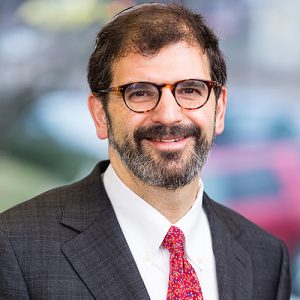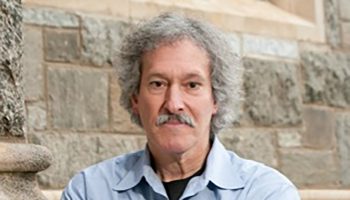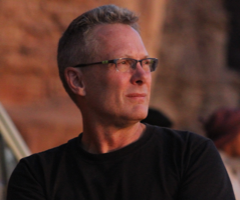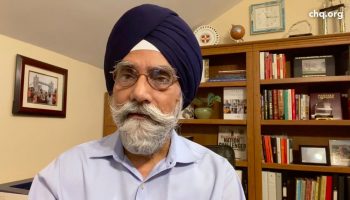For 18 years, Rabbi Asher Lopatin served as senior rabbi of Anshe Sholom Congregation, a Modern Orthodox synagogue in Chicago. This position, he said, gave him the opportunity to deeply connect with Jewish tradition by guiding his fellow believers. Lopatin is currently president of Yeshivat Chovevei Torah Rabbinical School.
However, even as a devoted Jewish leader, Lopatin said he has always been curious about other faiths.

“I’m very committed to being in the Jewish faith and learning about our tradition and being a rabbi,” he said, “but part of me feels you have to get out and explore the outside. Exploring different religions and religious groups is one way of doing that.”
For Lopatin, exploring other religions led him to study Islamic culture. In 1987, he spent five years studying Islam as a Rhodes Scholar and went on to St. Antony’s College at Oxford University as a doctoral student studying Islamic fundamentalism. Now, Lopatin is channeling his lifelong passion of interfaith study to start a university-oriented Center for Civil Discourse in Detroit.
At 2 p.m. Friday, Aug. 3, in the Hall of Philosophy, Lopatin, a member of the Council on Foreign Relations, will bring years of cross-cultural study and experience to the Institution for the season’s sixth Interfaith Friday. He will represent Modern Orthodox Judaism as he engages in interfaith dialogue with the Rt. Rev. V. Gene Robinson, Chautauqua’s vice president of religion.
“Whenever we’re stretched to think more about our own religion, our own selves, it’s healthy,” Lopatin said. “One of the great purposes of interfaith dialogue is to make us really think more about who we are and not take things for granted or let things get stale.”
As a representative of Modern Orthodox Judaism, Lopatin said this denomination encourages an “eagerness to engage the world around us.”
“Modern Orthodox Jewish people really think that it’s an important Jewish principle to learn from the world, and yet remain loyal to the traditions and the laws and be strict about them,” he said. “It’s this balance of being part of the world and yet having our own area of tight connection to Judaism. That’s where I locate myself.”
In finding a balance between tradition and outside engagement, Lopatin said he has discovered the full breadth of his faith. Judaism, he said, is about more than religion. It exists as a culture and nation of people, and he believes these different aspects can help non-Jewish people reflect on their own experiences.
“I think Judaism binds a religion, a nationhood, a peoplehood, a philosophy and a spirituality,” he said. “It really can offer different religions and peoples of the world something that stretches them and gives them insights into other areas of their own existence.”
Although Lopatin believes Judaism can help inform other faiths, he also believes Jewish people should study different spiritual traditions. In his personal interfaith experience, he has found that cross-cultural scholarship can bring communities together.
In this divided world, I’m very eager to try and find ways of bringing people together, and that’s a source of inspiration for interfaith work that I’ve done,” he said. “I’m also very interested to see how Islam and Judaism share many things and learn from each other on a philosophical, theological level. It would be great for the Muslim and Jewish communities to see each other as allies rather than adversaries or at odds.”




